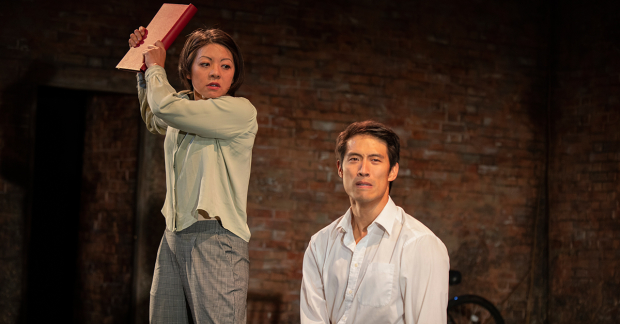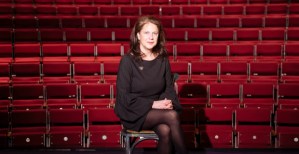Review: The King of Hell's Palace (Hampstead Theatre)
Michael Boyd directs playwright Frances Ya-Chu Cowhig’s newest work

© Ellie Kurttz
In her debut season as Hampstead Theatre's artistic director, Roxana Silbert might well smile if the rest of the productions in her tenure match the sense of scale and emotional turmoil offered by The King of Hell's Palace. Based on real events in Chinese province Henan during the 1990s, the story focuses on corrupt health officials prioritising huge capital gain over the lives of Chinese peasants. Playwright Frances Ya-Chu Cowhig deserves praise for having the bravery to consider tackling such an intimidating and complicated historical event, let alone the poise and literary skill to successfully depict this tragedy.
This is not to say that the production is excellent throughout – only the second act is worthy of such recognition. For the majority of the first hour, the play seemed like an idea too broad in scope to be impactful, with a cast of only eight actors. Interaction between them did not always bring the best out of the script and furthermore there were a number of dialogue errors. Overall, the story initially felt akin to a rejected television pilot awkwardly shunted to the stage.
By contrast, the second act mesmerised and makes one wonder how much potential this play could have with a few tweaks. Consistent throughout is the aesthetic beauty of Ya-Chu Cowhig's script; as a family of peasants contemplate death close to the play's finale, the line "let our flesh feed our flowers" strikes at the utter tragedy of unknowingly sentencing themselves to disease in order to secure financial stability.
Tom Piper and Colin Grenfell (designer and lighting designer respectively) contribute enormously to the successful aspects of the production. One inventive element of the set involved a pair of flat treadmills running centrally from the back of the stage into the crowd, used to move characters and props in and out of scene. This concept worked beautifully with the train metaphor woven throughout the play. To hear an immoral health official justify his egregious crimes by saying "regardless of who is on it, the train keeps moving forward at exactly the same speed" and then watch him slowly replaced on stage by an AIDS-ridden peasant family is extremely haunting.
Music in the first act is typified by the family's garish karaoke machine, bought using medical trial payments, and its original overuse does feel rather tedious. As the play shifts to a more serious tone however, the songs and accompanying giddiness are noticeable for their absence. They are replaced by the more sombre noises of a singular drum and a piercing train whistle that reach crescendo during the play's emotional climaxes. Questionable in the beginning, Nicola Chang's deft sound design has much to offer.
This is a solid production but could unquestionably be a great one. Ya-Chu Cowhig's ability to skilfully explore the maddening aspects of capitalism, bureaucracy and greed lend The King of Hell's Palace the air of a modern parable.


















